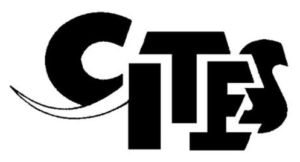Permitting
Convention on International Trade in Endangered Species of Wild Fauna and Flora (CITES) Permits
What is CITES?
CITES is an international agreement between 166 governments that regulates the trade and exchange of biological specimens to ensure that sample collection and demand does not threaten the species survival in the wild.

CITES protects over 35,000 species of plants and animals and assigns them one of three levels of protection:
Appendix I: No commercial trade is allowed. This designation includes species that are threatened with extinction.
Appendix II: Trade is allowed but requires a CITES export permit. This includes species that are not currently at risk of extinction, but which require protection to ensure that their trade does not affect their survival in the wild.
Appendix III: This includes species that are “protected in at least one country which has asked other CITES Parties for assistance in controlling the trade.”
Coral Specimens under CITES
All stony corals are considered Appendix II species, so trade is allowed with appropriate permits and documentation. Permits are required for the following coral samples:
- Live corals (whole colonies and fragments with recognizable corallites)
- Coral skeletons
- Eggs, sperm, planula larvae
- Live rock
- Reef substrate and eroded skeletal fragments greater than 3 cm in diameter
- Any coral sample less than 3 cm if the corallites are discernable and adequate for identification to the genus level
Shipping Internationally INTO the US
Exporting Country:
CITES export permits issued by the Management Authority in the country of origin are required and must be included with any shipments.
Importing to US:
The US does not require importing permits, but the shipment must be declared using USFWS Form 3-177.
All shipments must be received by one of 17 Designated Ports
Shipping Internationally OUT OF the US
Exporting from the US:
A valid export permit issued by the CITES Management Authority (US Fish and Wildlife Service, USFWS) is required and must be included with each shipment
Importing Country:
A CITES import permit is sometimes required depending on the destination country.
Shipping between US and US Territories
No CITES permits (import or export) are required for shipping between US Terriroties
US Territories: U.S. Virgin Islands, Puerto Rico, Guam, American Samoa, Commonwealth of the Northern Mariana Islands
Certificates of Scientific Exchange (COSE)
Scientific institutions are encouraged to register for Certificates of Scientific Exchange (COSE) in order to streamline the permitting process. COSE registration authorizes the non-commercial loan, donation, and exchange of biological specimens between any other registered institutions without the need for CITES export and import permits.
You can apply for COSE by submitting the USFWS Form 3-200-39 to the Division of Management Authority.
To Learn More...
To read more about the Convention on International Trade in Endangered Species of Wild Fauna and Flora or to download official documents, visit the CITES website.
 Official websites use .gov
A .gov website belongs to an official government organization in the United States.
Official websites use .gov
A .gov website belongs to an official government organization in the United States. Secure .gov websites use HTTPS
A lock or https:// means you’ve safely connected to the .gov website. Share sensitive information only on official, secure websites.
Secure .gov websites use HTTPS
A lock or https:// means you’ve safely connected to the .gov website. Share sensitive information only on official, secure websites.